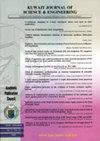The combination of intermittent caloric restriction and moderate-intensity interval training in decreasing blood glucose and CRP levels with a high glycemic index diet
引用次数: 0
Abstract
This study aims to analyze the effect of the combination of intermittent calorie restriction and moderate intensity interval training (MIIT) on serum c-reactive protein (CRP) levels as one of the inflammatory mediators and blood glucose levels in female mice exposed to a-high glycemic index diet. The sample of this study was female mice Balb/c strain, divided into four groups:, the control group (con), the intermittent calorie restriction group (restrict), the MIIT group (interv), and the combine group of intermittent calorie restriction and moderate-intensity interval training (restrict+interv). A high glycemic index diet was a high calorie and was provided by standard feed and oral gavage of 0.013 g/gBW glucosesolution. Intermittent calorie restriction was 50% reduction of the standard feed 3x/week. The MIIT was five-minute intervals of swimming and 30 seconds of passive rest consecutively for 30 minutes and 3x/week. Meanwhile, the treatment duration was four weeks. The oral glucose tolerance test consisting of fasting blood glucose (FBG) and a two-hour post -prandial (2HPP) blood glucose was measured before and after the treatment. CRP was examined only after the treatment. The restrict + interv group had a significant reduction in CRP levels compared to the restricted group (p = 0.005) and the interv group (p = 0.044). The FBG levels the restrict + interv group and restricted group had a significant decrease (p = 0.026). Moreover, 2HPP of the restrict + interv group and restricted group had a significant decline (p = 0.000). This study concludes that the combination of intermittent calorie restriction and moderate -intensity interval training can attenuate elevated serum CRP and blood glucose levels.结合间歇性热量限制和中等强度间歇训练降低血糖和CRP水平与高血糖指数饮食
本研究旨在分析间歇性热量限制和中等强度间歇训练(MIIT)结合对暴露于高血糖指数饮食的雌性小鼠血清c-反应蛋白(CRP)水平和血糖水平的影响。本研究以Balb/c系雌性小鼠为样本,分为4组:对照组(con)、间歇热量限制组(restrict)、MIIT组(interv)、间歇热量限制与中强度间歇训练联合组(restrict+interv)。高血糖指数日粮是一种高热量的日粮,通过标准饲料和0.013 g/gBW葡萄糖溶液灌胃提供。间歇性热量限制比标准饲料减少50%,每周3次。MIIT是5分钟的间歇游泳和30秒的连续被动休息,每次30分钟,每周3次。同时,治疗时间为四周。在治疗前后分别测定空腹血糖(FBG)和餐后2小时血糖(2HPP)的口服葡萄糖耐量试验。仅在治疗后检测CRP。与限制组(p = 0.005)和干预组(p = 0.044)相比,限制+干预组的CRP水平显著降低。限制+干预组和限制组空腹血糖水平显著降低(p = 0.026)。此外,限制+干预组和限制组的2HPP显著下降(p = 0.000)。本研究得出结论,间歇性热量限制和中等强度间歇训练相结合可以降低血清CRP和血糖水平升高。
本文章由计算机程序翻译,如有差异,请以英文原文为准。
求助全文
约1分钟内获得全文
求助全文
来源期刊

Kuwait Journal of Science & Engineering
MULTIDISCIPLINARY SCIENCES-
自引率
0.00%
发文量
0
审稿时长
3 months
 求助内容:
求助内容: 应助结果提醒方式:
应助结果提醒方式:


